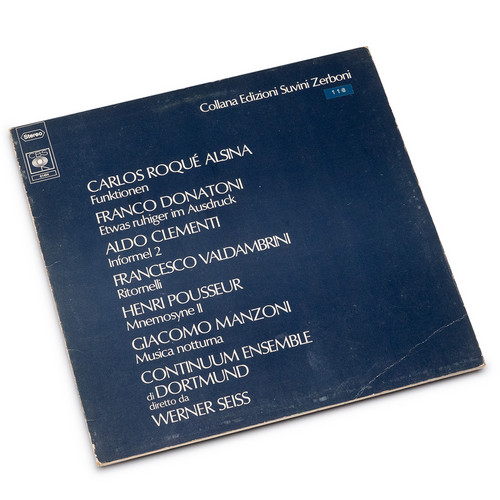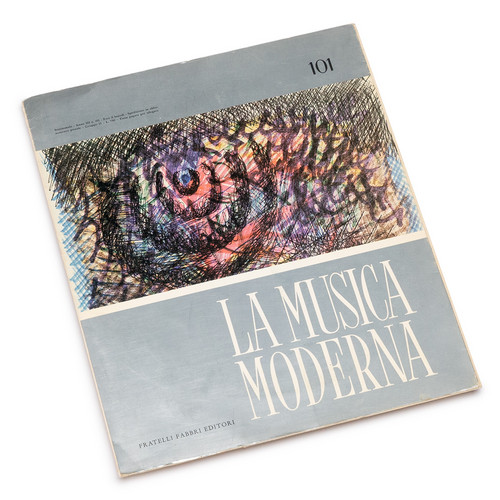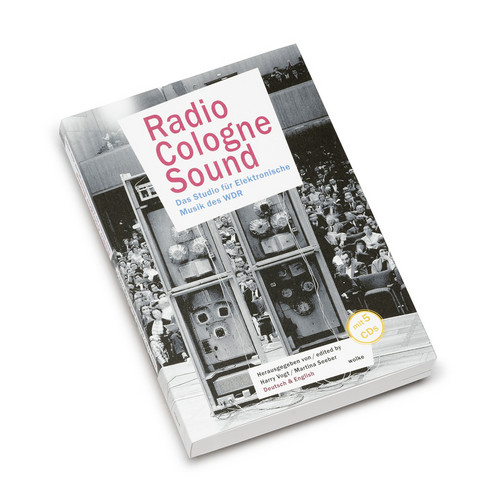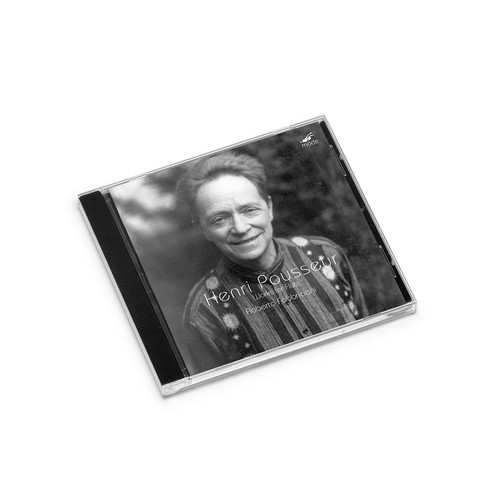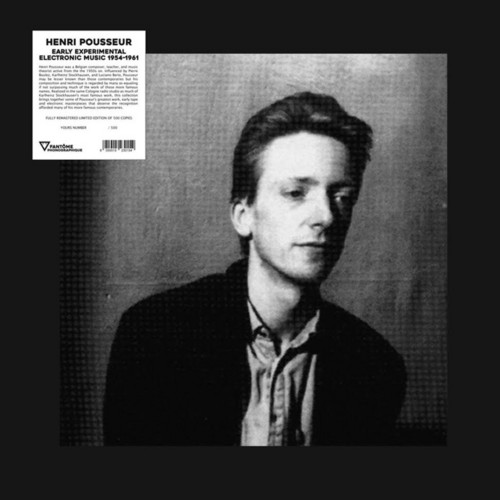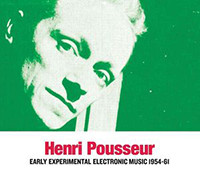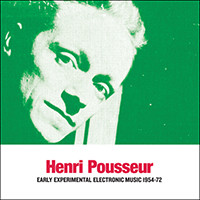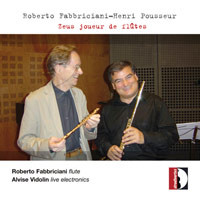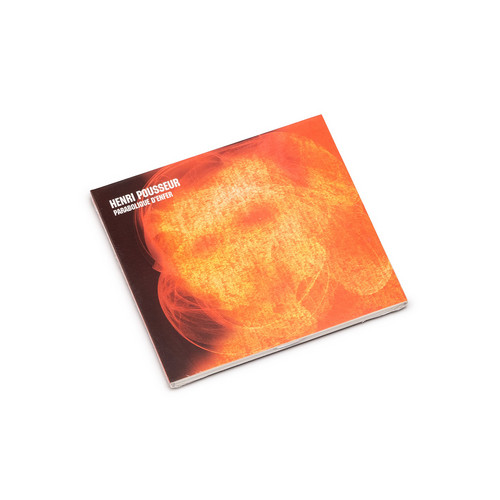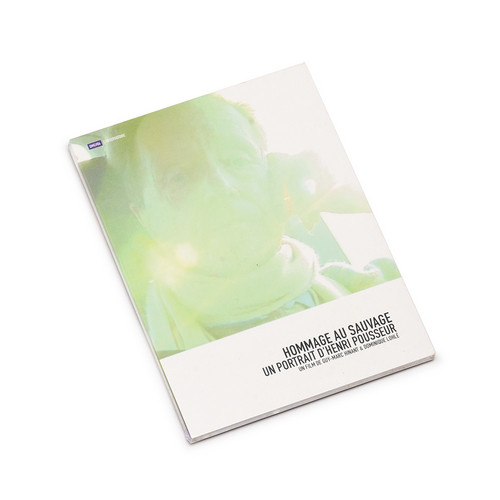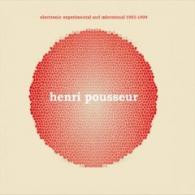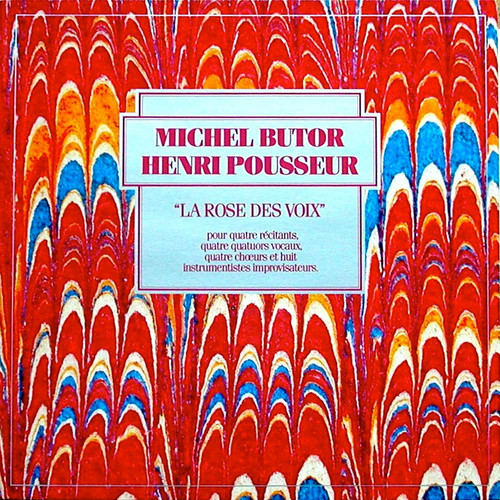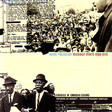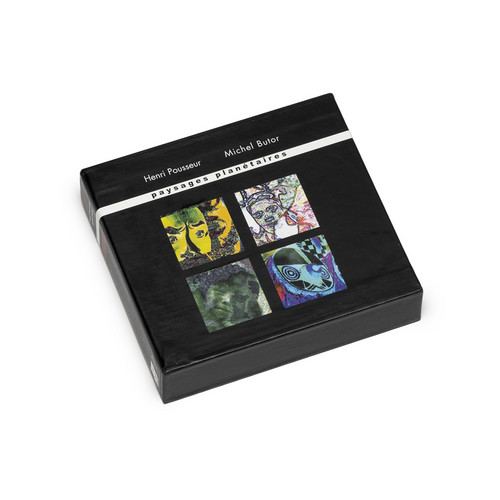Henri Pousseur
Continuum Ensemble Dortmund (LP)
condition (record/cover): VG (record looks near mint but has surface noise throughout) / VG+ (creasing + small tag on front + spine wear + minimal general wear). Italian post-war avant-garde meets the new music pioneers! This rare Italia label release documents the Continuum Ensemble Dortmund under conductor Werner Seiss performing landmark works from the European experimental vanguard. Carlos Roqué Alsina's Funktionen (1965) showcases the Argentine-French composer's work with Luciano Berio and …
La Musica Moderna 101 (10")
condition (record/cover): VG (record looks near mint but has surface noise throughout) / EX- Oversize gatefold sleeve - no magazine. A landmark coupling of two masters of European post-war modernism! Luciano Berio's Circles (1960), one of his most celebrated works, sets texts by e.e. cummings for soprano, harp, and two percussionists - a virtuosic exploration of phonetic and semantic dimensions performed by the incomparable Cathy Berberian, for whom the work was written. Berio's spatial disposi…
Radio Cologne Sound Das Studio für Elektronische Musik des WDR
Small repress available! Biggest Tip possible! ** English/German edition. 288 pp + 5CD plenty of incredible music, most of which have never been heard before ** From the Wolke Verlag imprint, who've already brought us incredible books like Karl Berger's "The Music Mind Experience", "FMP Free Music Production - The Living Music", Peter Brötzmann's Along the Way, and George Lewis' "Composing While Black. Afrodiasporic New Music Today", to name only a few and a great many more - comes one of the m…
Works for Flute
"Flutist Roberto Fabbriciani continues his releases dedicated to the flute repertoire of single composers with works by Belgian composer Henri Pousseur (1929-2009). Previous releases on Mode featured Aldo Clementi and Bruno Maderna.As with Fabbriciani’s preceeding Clementi and Maderna releases, this Pousseur release marks the first time Pousseur’s works for flute have been collected in one recording. It is important to note that Fabbriciani had a long working relationship with the composer.The s…
Early Experimental Electronic Music 1954-1961
Henri Pousseur was a Belgian composer, teacher, and music theorist active from the the 1950s on. Influenced by Pierre Boulez, Karlheinz Stockhausen, and Luciano Berio, Pousseur may be lesser known than those contemporaries but his composition and technique is regarded by many as equaling if not surpassing much of the work of those more famous names. Realized in the same Cologne radio studio as much of Karlheinz Stockhausen's most famous work, this collection brings together some of Pousseur's gr…
Early Experimental Electronic Music 1954-61
Outstanding, unreleased before fundamental electronic In 1954, Henri Pousseur was twenty-five when he composed his first piece of electronic music in the studios of the Cologne radio, where Stockhausen (with whom he had a close relationship) had created most of his famous pieces. Released in our Early Electronic series This seventh and penultimate installment in the series Henri Pousseur had programmed around his experimental and electronic music features his earliest works -his first steps. Hen…
Early Experimental Electronic Music 1954-72
Outstanding, unreleased before fundamental electronic In 1954, Henri Pousseur was twenty-five when he composed his first piece of electronic music in the studios of the Cologne radio, where Stockhausen (with whom he had a close relationship) had created most of his famous pieces. Released in our Early Electronic series This seventh and penultimate installment in the series Henri Pousseur had programmed around his experimental and electronic music features his earliest works -his first steps. Hen…
Zeus joueur de flutes
Alvise Vidolin (live electronics), Roberto Fabbriciani (flute)
Parabolique d'Enfer / Paraboles-Mix avec Leons d'Enfer
This recording will be Sub Rosa's first posthumous recording of Henri Pousseur. It is the sixth release (out of eight) in their catalog devoted to this composer's experimental and electronic works. It also marks the end of the trilogy of the Parabolic works (following the 1972 unreleased recordings and the 2001 collective performance). This time around, we have a piece built through another major Pousseur work: Leçon d'Enfer (composed in 1990-1991 around Arthur Rimbaud). This previously-unreleas…
Hommage Au Sauvage - A Portrait
This portrait of renowned composer Henri Pousseur arrives just days after his death at the hands of bronchial pneumonia, aged 79. The documentary goes some way towards conveying Pousseur's warmth and openness as well as giving some impression of the breadth of his career and its accomplishments. The film documents Pousseur taking one last trip to Basel's Fondation Paul Sacher, to which he's donated his full archive of sound materials, research and memos. In addition to spending time during the j…
electronic experimental and microtonal 1953-1999
This is the 5th part of the complete experimental and electronic music by the composer - after Liège à Paris (1977), Eight parabolic studies (1972), Four parabolic mixes (1972-2001, Mixed music (1966-70) and before Narrative voices and electronic (1960-1982), Paraboles-Mix avec Leçons d'Enfer (1972-1999) and Experimental Electronic and Noise (1954-61). Here, 5 rare pieces that come from 5 decades and performed by Rohan de Saram (Quatuor Arditti), Evert van Tright (who played mainly Stockhausen),…
La Rose des voix
A monumental collaboration between Michel Butor and Henri Pousseur - two titans of the European avant-garde meeting at the absolute peak of their creative powers! La Rose Des Voix stands as one of the essential documents of contemporary vocal music, a kaleidoscopic "fête des peuples amoureux" built around a polychrome variation of Ezekiel's prophecies. Pousseur conducts multiple ensembles - the Ensemble Vocal led by Marie-Claude Remy, Les Compagnons Du Champeau under Emmanuel Poire, and his own …
Musique mixte 1966-1970
This is the fourth Henri Pousseur CD in Sub Rosa's Early Electronics series, exploring the work of this Belgian theoretician and experimental/avant garde composer. Along with previous releases in this series, Musique Mixte will cover all his electronic music and his most radical works between 1953 and 1988 -- 35 years of research and experiments. These recordings are a continuation of Sub Rosa's earlier releases, namely: Liège à Paris (a piece composed thanks to Luciano Berio and premiered at th…
Paysages Planétaires
In 2000, Henri Pousseur was asked by Philippe Samyn, a Brussels-based architect who liked to work in collaboration with other artforms, to lend his support to the plan for the construction of a business complex by one of the most important building enterprises in the country. There were four low buildings arranged like different parts of a medieval castle-village, grouped around a kind of large open central court. Leaning on the suggested image, Pousseur immediately suggested that the fir…
